Text
what your favourite yuzuru hanyu programme says abt you
seimei - you probably started following yuzu after the PC games. that, or you are an avid 330 fan. you’re probably a gryffindor and also maybe a jock?
hope and legacy - you’ve watched all the ghibli films and love nature. you like to go hiking in your free time and you’re probably into cottagecore. you know that one B.ESP commentary, you know the 2 mil views one, by heart.
requiem - who hurt you??? seriously, who hurt you this bad? do you need a hug?
ballade no. 1 - you’ve got taste. period. you’ve probably played an instrument at one point of your life. you’re likely a perfectionist and got 95′s in school. you’re cool and serene most of the time but fly off the handle pretty easily.
let’s go crazy - you’re either horny or a lesbian, or maybe even both. “purple pants of sin” rights, you cry, whenever anyone makes fun of the costume. quad sal - weight shift - triple toe has probably appeared in your nightmares, at one point.
notte stellata - you’re a strong believer in the phrase “great art comes from great pain”. you’ve probably read the picture of dorian gray and aestheticism is your jam. you have an eye for beautiful things, enough said.
otonal - you’ve probably called yuzuru a “princess” at one point of your life (and are you wrong?). you believed in magic as a kid and are known as sweet and positive. you would die for the double saut de basque in the step sequence.
parisienne walkways - you’re wild and fun and maybe a little bit unhinged. 100% unpredictable. you’ve probably been an fs fan for a while now. your religion is the back counter - 3A - high kick.
phantom - you’re a little bit basic, but that’s okay. you’re dramatic enough to make up for it. once you start something, you won’t give it up. not even if it kills you.
romeo and juliet (1 or 2) - annnnnnngst. what can i say except angst? you’re a boobskirt enthusiast and live for the headbanging (?) chsq in r&j 1.0. you probably cry very easily and maybe an english major? either way, you’re bad at math.
380 notes
·
View notes
Text
What’s with this trope of the light haired boy being in love with the dark haired protagonist


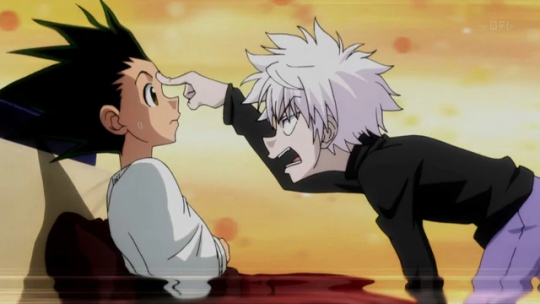
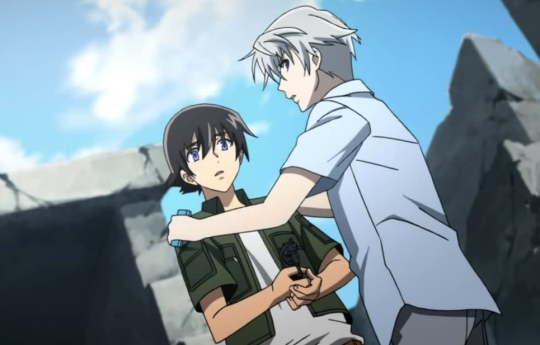




The list can go on eternally if I put my heart into it.
Bonus points if the dark haired boy is oblivious, it’s unrequited or they get a tragic ending
31K notes
·
View notes
Text





made these phone wallpapers 💖💖💖
100 notes
·
View notes
Text
Petitions that still need signatures:
Justice for George Floyd
Justice for Breonna Taylor
Justice For Joāo Pedro
Justice For Emerald Black
Justice For Tony McDade
Justice for Belly Mujinga
Exoneration of Albert Wilson
Justice for Amiya Braxton
Justice for Tete
Justice for Jennifer Jeffley
Justice For Darrius Stewart
Justice for Crystal Mason
Justice for Sean Reed
Justice for Tamir Rice
Justice for Sean
Justice for Dion Johnson
Free Siyanda
Justice For Alejandro Vargas Martinez
Willie Simmons has served 38 years for a $9 robbery
Reopen Kendrick Johnson’s Case
Justice for Cameron Green
Justice for Young Uwa
Justice For Amari Boone
Justice for Rashad Cunningham
Julius Jones is innocent. Don’t let him be executed by the state of Oklahoma
Disbarment of George E. Barnhill
Free Jefferson Elie
Justice for Dafonte Miller
Justice for Andile Mchunu
Justice for Tazne Van Wyk
Reopen Sandra Bland’s case
Fire Racist Criminal Michael J Reynolds from the NYPD
Justice for Ahmaud Arbery- Pass Georgia Hate Crime Bill
Justice For Regis Korchinski-Paquet
Justice for Angelesea Rock
Free Anthony Wint
Justice for James Scurlock
Reopen the case involving the death of Tamla Horsford
Fire Jared Campbell
Justice for Ashton Dickson
Justice for Collins Khosa
Justice For Mubarak Soulemane
Justice for Sherrie Walker
Justice for Jonas Joseph
Justice for Elijah McClain
Pardon Black Woman Imprisoned for Voting
Arrest Juan DelaCruz for the murder of Pamela Turner
National Action Against Police Brutality
Dismiss the charges on Marshae Jones and charge the one who shot her and her unborn baby
Ban the use of inhumane rubber bullets
55K notes
·
View notes
Text
Why Beautiful World is from Kaworu's POV
(English is not my mother language, so I apologize in advance for any mistakes)
First of all, like this post by avocado-slice states, Kaworu is the only Eva character who uses “boku” and “kimi” (“boku no sekai kieru made aenu nara kimi no soba de nemurasete…”) aside from Shinji, who does use boku but doesn’t always use kimi. So, unless you think this is from Shinji’s point of view, with Shinji singing about a beautiful boy (it wouldn’t make much sense)… I’d say it’s pretty clear the only option is Kaworu.
That said. Beautiful World is sang from the POV of a person who speaks about a beautiful world and a certain beautiful boy who doesn’t realize how beautiful he is, because he doesn’t like himself.
The song plays after the last scene of Evangelion 1.0. And guess what that last scene was about?


Kaworu looking at a beautiful world while thinking about a certain beautiful boy.
A remix of the song plays right before the very last scene of Evangelion 2.0 too, and even in 2.0 the last scene was about Kaworu descending on Earth and talking about the same beautiful boy.
Kaworu finds this world to be beautiful, everything is beautiful and interesting to him; it is not a coincidence that the first time we hear this song is right after Kaworu’s awakening on the moon, from where he has this beautiful view of the Earth. It is not a coincidence that the first thing Kaworu does is wonder how Shinji is doing while glancing at the faraway Earth, that he wonders about a beautiful boy while looking at his beautiful world.
From this post again, I quote:
The use of the word “Beautiful” is something that has been attributed to Kaworu as well. Not much for the western fandom, but the Japanese fandom have got to see Kaworu calling Shinji “Beautiful” quite a lot of times in Shinji Ikari Raising Project, Neon Genesis Evangelion: Another Cases, etc.
Funnily enough, the word Kaworu uses to say Shinji is beautiful is “Kirei”, which is usually reserved for beautiful woman.
Also, about Kaworu finding this world to be beautiful, from TV Tropes:
Kaworu, despite having been raised (and perhaps created) by SEELE values the achievements of human culture and respects Shinji’s ability to pick himself up and keep going after heartbreak instead of giving up on life the way Gendo and SEELE have. The belief that humans, not Angels, should have the future is the motive for his Heroic Sacrifice, and he later appears after Third Impact as a Spirit Advisor and the symbol that not all Humans Are Bastards
What I mean by quoting this is that even though Kaworu is an Angel, he is on lilim’s side. In Rebuild, too, he’s working behind the scenes to make sure Gendo doesn’t succeed and thus stop Instrumentality. He is probably the only Eva character who truly loves this world and humanity as it is (probably right because he’s not human, lol). That’s why this world is beautiful to him.
The lyrics express a curiosity and taste for inquiry (“Don’t you like yourself?”) that is typical of Kaworu. He often asks Shinji questions about what he thinks/feels (example: “Do you hate people?”). He also tends to make a statement about something he just learned about Shinji and then ask him a question, (example: “You are extremely afraid of first contact. Are you that scared of affection?”) So a phrase like “Whether you’re sleeping or awake, you just dream of shounen manga. Don’t you like yourself?” seems just the kind of phrase Kaworu would say. No one asks Shinji questions like Kaworu does, no one is that curious to know him better, to know what he thinks and how he feels. The lyrics express a selfless warmth and caring that no other Evangelion character has except for Kaworu.
Let’s go into detail.
This is the translation I’m using.
It’s only love
Kaworu is the only character who represents the words “I love you” to Shinji.
If I can be granted just one wish,
Please let me sleep next to you. Any place is fine.
Kaworu has slept by Shinji’s side both in the anime and in the manga, while in Rebuild the scene that counts as “sleeping” next to him is actually the scene in which he simply lies next to him and they watch the stars together. On the dirty, cold, hard floor (any place is fine) instead of a comfy bed.
Beautiful world
Without regrets, my eyes are only on you.
Beautiful boy
You don’t know yet, just how beautiful you are.
Kaworu’s eyes are only for Shinji and no one else — he doesn’t really care about/interact with anyone else — and he finds him beautiful, blah blah, you know this already. Moving on.
Whether you’re sleeping or awake,
You just dream of shounen manga. Don’t you like yourself?
Already commented on this above.
You don’t know what you want, but you can’t stop wanting.
Lukewarm tears roll down your cheeks.
He is clearly talking about Shinji. I hope at least this is clear.
I have nothing I want to tell you,
I just want to meet you again.
I can’t say what I want to tell you,
Maybe I’m just a coward.
But that’s alright too.
I personally think this should have been translated as “you can’t say what you want to tell me, maybe you’re a coward, but that’s alright too”, it would make better sense since it’s Shinji the one who won’t admit his feelings aloud until it’s too late and Kaworu is dead (”I haven’t told you anything yet” — Sakura Nagashi). It would also mean that maybe yes, Shinji might be a coward – but that’s alright, too. Because running away is fine (which is one of the messages Anno tried to convey in Evangelion). It could’ve been translated either way though, because the subject is not specified in most of the lyrics, I think.
No matter what it is, give everything a try.
Even if you get hurt, it’s a valuable experience.
Another thing Kaworu often does is give advice to Shinji on what to do/how to improve himself. So again, this is a phrase Kaworu would say, and no other character. Other characters just order Shinji around or scold him, never actually giving good advice; they impose on him their views (running away is not fine! you’re a coward! you’re not a true man! you didn’t save me! you HAVE to pilot this robot! stop being such a baby! etc) without considering his feelings. Those are orders, not advice. It’s not Kaworu’s tender “hey, you should do this, I’m sure it’s going to help”, it’s a horrible “if you don’t do this you’re a coward and you’re useless and worthless”.
This is why only Kaworu could have said this phrase.
I don’t need newpapers.
The important things are not printed there.
How are you doing recently?
If you are fine,
Then that’s good I guess.
The only character that revolves completely around Shinji is Kaworu. Kaworu does not seem to take an interest in other people aside from Shinji. What is happening in the rest of the world has no importance to him, because the only important thing is Shinji’s wellbeing/happiness. If Shinji is doing fine, then everything’s fine, too.
No, it’s not the same for Rei. No, Rei’s world does not revolve around Shinji, it revolves around Gendo. Her development in the anime is about her gradually understanding more about herself, it’s not about helping Shinji or keeping an eye on Shinji’s wellbeing or looking only at Shinji, and she does not give Shinji any advice. How could she give advice to someone else when she barely knows who she is and why she’s alive?
If I can’t meet you before my world ends,
Please let me sleep next to you. Any place will do.
Beautiful world
As these fleeting days pass by,
Beautiful boy
It’s natural to feel whimsical.
The only person who unconditionally loves and accepts Shinji for who he is and thus does never, ever judge him is Kaworu. The fact Kaworu does not judge him is probably one of the things about Kaworu that enchant and attract Shinji the most. Every other character judges him: Misato, Rei, Asuka, his father, Mari… everyone. Everyone scolds him at least once and/or shows disappointment in his behaviour. Kaworu doesn’t. Even when Shinji pulls out the spears in 3.0, thus triggering the Near-Fourth Impact, Kaworu doesn’t blame him like everyone else is doing. Kaworu takes all the blame upon himself, and smiles at him. If Shinji makes a mistake, Kaworu says yes, you have done a mistake, but here’s how you can make up to that and here’s how you can improve yourself; there’s always hope, after all. That’s why he’s the only character who could have said “It’s natural to feel whimsical” to Shinji. He’s telling him that the way he’s feeling (wanting to run away, being scared, wanting Father to praise him, not wanting to pilot the Eva but also kinda wanting to be the one who pilots it, etc) is fine and natural, and he shouldn’t be ashamed of it.
No, Beautiful World can’t be from Rei’s POV. It can’t be from Asuka’s POV, either.
First, because the girls of Evangelion don’t use “boku” and “kimi”.
Second, because they don’t speak the way the lyrics do. They don’t show that kind of interest/curiosity about Shinji’s thoughts or feelings and they don’t ask him that kind of questions. They sure as hell don’t give him advice and they surely don’t tell him that what he feels is natural/fine. And they might have an interest in Shinji but they don’t find him beautiful. They don’t find this world to be beautiful either: Asuka hates everything and everyone and Rei doesn’t give a shit about most things. The only things Rei II gets to learn about herself (her feelings and the importance of individuality and free will) are thanks to Shinji, not the world. I also doubt she has an opinion about the world, since she doesn’t seem to have an opinion about basically anything.
Misato doesn’t find this world to be beautiful either, and her life doesn’t revolve around Shinji, so it can’t be Misato.
It sure as hell can’t be from the POV of Mari, Kensuke, Touji, Kaji, the class rep, Gendo, Fuyutsuki, Penpen, Ritsuko… who else could we try with?
Oh, right, there’s Yui. It can’t be Yui either because she’s dead and gone she does not use boku and kimi, and since she’s dead she can’t know whether Shinji likes himself or not, if he cries or not, and the whole “maybe I/you am/are just a coward” thing makes no sense in her case.
Whoops, we ran out of characters. Seems like Kaworu is the only one who fits perfectly this song’s lyrics.
My work here is done. Now go and preach the Gospel of the New Century.
655 notes
·
View notes
Link
List of 188 Japanese particles with meaning / usage
は (wa)Indicantes the topic of a sentence
か (ka)At the end of a sentence indicating a question
が (ga)Indicates the subject of a sentence
に (ni)Indicates a location
の (no)Indicates possession
は (wa)Indicates a contrast between 2 items
に (ni)Indicates time or frequency
へ (e)Indicates direction
を (wo/o)Indicates the direct object of a verb
と (to)Used to connect and list up multiple items
や (ya)Used to connect and partially list up multiple items
など (nado)Used with や (ya) to partially list up multiple items
も (mo)means “too”, “either”, “also”
も (mo)both…and…, neither…nor…
に (ni)Indicates the indirect object of a verb
に (ni)Indicates the surface of a object where some action takes place
で (de)Indicates the location of an action
と (to)Together with
の (no)Indicates an apposition
から (kara)Indicates a starting point in time or place
より (yori)Indicates a starting point in time or place but more formal than kara (20)
まで (made)Indicates a limit on time, space or quantity
くらい (kurai)Indicates an approximate amount
ほど (hodo)Indicates an approximate amount
ばかり(bakari)Indicates an approximate amount
で (de)Indicates a means or material
か (ka)Indicates a choice or alternative
を (wo/o)Indicates a point of departure
を (wo/o)Indicates a route of a movement/motion
に (ni)Indicates a point of arrival
に (ni)Indicates an entering motion
に (ni)Used together with a verb to express a purpose
と (to)Used when quoting someone
と いう (to iu)Indicates the name of something
とか (toka)“something like”
で (de)Indicates a limit or scope
と (to)Indicates a comparison
より (yori)Indicates a comparison
より (yori)Indicates superlative
くらい (kurai)Indicates a comparison
ほど (hodo)Indicates a comparison in a negative sentence
か (ka)someone, something
も (mo)“nothing”, nobody”, nowhere” if used with an interrogative word
に (ni)Used with a verb to indicate a change or choice
をする (wo/o suru)Expresses an occupation or position
でも (demo)Indicates emphasis
でも (demo)Together with an interrogative word it means “anything”, “anyone”, any time”
で (de)Indicates a cause or a reason
から (kara)Indicates a source such as a giver, a cause or material
に (ni)Indicates a person who gives something or who provides a service
は (wa) + が (ga)Indicates the relation between an object / subjects and a verb or adjective
が (ga)Connects two sentences with the meaning “but…”
を (wo/o)Used with an verb expressing emotions, it indicates the cause of this emotion
で (de)Indicates a state / condition of something
で (de)Limits numbers
だけ (dake)Indicates a limit on things or amounts
だけ (dake)Indicates a limit on an action or state
で (de)Indicates the time of completion or expiration of something
でも (demo)Following a noun, means “or something like this”
も (mo)Emphasizes in a positive or negative way
でも (demo)Indicates two or more items as an example of a larger list
ばかり (bakari)Indicates that an item, state or action is a single one
ばかり (bakari)Indicates an action was just completed
ところ (tokoro)Indicates that an action takes place, just took place or is about to take place
が (ga)Indicates the subject of subordinate clause when it is different from the subject of the main clause
から (kara)conjunction meaning “after” or “since”
ながら (nagara)Indicates that an action is happening simultaneously
が (ga)Indicates the subject of a relative clause
の (no)Indicates the subject of a relative clause
から (kara)Used as a conjunction and indicates a cause or reason
ので (node)Indicates a strong reason
の (no)Indicates a modified pronoun
の (no)Used to nominalize verbs & sentences
なら (nara)Used as a conjunction and indicates a supposition or condition
なら (nara)Indicates a topics and is used as an alternative to wa (No.1)
と (to)Indicates a condition that results in an inevitable outcome
ば (ba)Used as a conjunction to express a probable results
ばいい (ba)“all you have to do…”
ば (ba)Used to enumerate two or more actions or states
たら (tara)Used as a conjunction, indicates a supposition or condition
たら (tara)Used as a conjunction to indicate that one action takes place before the action described in the main sentence
ところ (tokoro)Used as a conjunction to indicate a condition that brings about a discovery
ても (temo)a conjunction meaning “even if”
ても (temo)Used with a set of contrasting verbs and adjectives
ても (temo)Together with an interrogative word it means “no matter what/where/who”
ては (tewa)Indicates a condition which will bring a negative conclusion
のみ (nomi)Indicates a limit (similar to だけ dake)
まで (made)“even”, used to emphasize
さえ (sae)“even”, used to emphasize
さえ (sae)“if only” or “as long as”
のに (noni)“although”, “in spite of the fact that”
ながら (nagara)“although”, “though”, “but”
とか (toka)Indicates that a list of two ore more things or actions is not exhaustive
たり (tari)List of two or more actions in no particular sequence
たり (tari)Indicates actions or states that alternate
のに (noni)Indicates a purpose or function
のです (no desu)Asks for an explanation or reason
きり (kiri)Indicates a limit to an amount
きり (kiri)Indicates the last time a certain incident occured
とも (tomo)Used with numbers and counters to mean “both” or “all”
ながら (nagara)Used with numbers and counters to mean “both” or “all”
しか (shika)Used with a negative verb to indicate limits on conditions or quantities meaning “only”
しかない (shika nai)used with a verb meaning “to have no choice but to”
し (shi)Used as a conjunction, indicating two or more actions or states
し (shi)Used as a conjunction indicating a reason
とも (tomo)Indicates inclusion
に (ni)Indicates the one acting or the one acted upon
か (ka)Indicates uncertainty about something
か (ka)Indicates uncertainty about a state or reason
だの (dano) Indicates two or more items or actions of a longer list (similar to toka とか)
だの (dano)Indicates a pair of opposite actions or states
など (nado)“something to the effect”
やら (yara)Indicates two or more items of a longer list
やら (yara)Indicates uncertainty
ても (temo)Indicates an approximate limit with the meaning of “at the most”
とも (tomo)Indicates an approximate maximum or minimum
は (wa)Indicates that a number is the higher or lowest limit
と (to)Emphasizes a number in a negative sentence
など (nado)Indicates examples
くらい (kurai)Expresses an extent of an action or condition similar to ぐらい gurai
ほど (hodo)Indicates the extend of an action or condition
ほど (hodo)“the more… the more…”
だけ (dake)“as… as…”
だけ (dake)“the more… the more…”
と (to)“about to do something”, “trying to do something”
と (to)“even if…”, “whether… or not”
なり (nari)“either…”, “whether…or”
なり (nari)“anything”, “anyone”, “any time”
こそ (koso)Emphasizes the word preceding it
こそ (koso)Emphasizes a reason or a cause
ては (tewa)Expresses repetition of an action
に (ni)Joins two or more nouns to indicate a list of items
に (ni)Connects two or more items to indicate a matching or a contrast
にしては (ni shite wa)Indicates a generally agreed upon standard
にとって (ni totte)Indicates an effect or value of a person or thing
について (ni tsuite)“about”, “concerning” something or someone
とも…とも (tomo… tomo)“can’t say whether… or…”
が (ga)“even if”, “whether… or not”
は (wa)Emphasizes contrasting elements
として (toshite)Indicates status, capacity or function
として (toshite)Provides emphasis in a negative sentence
ばかりでなく(bakari de naku)“not only… but also”
だけ (dake) used to express “not only…but also”
のみ (nomi)used to express “not only…but also”
なり (nari)“as soon as”
146がはやいか (ga hayai ka)“as soon as”
やいなや (ya ina ya)“as soon as”
かないうちに (ka nai uchi ni)“no sooner had”, “hardly had”
ばかり (bakari)Indicates the only action left to do
ばかりに (bakari ni)Emphasizes a reason or cause
すら (sura)Emphasizes in the meaning of “even”
など (nado)Expresses a humble attitude towards an item
とも (tomo)“no matter what”, “even if”
ともあろうひと (tomo aroo hito)To express that someone did something not to be expected
どころか (dokoro ka)“far from”, “not to mention”
だけに (dake ni)Indicates a cause or reason
までもない (made mo nai)“there is no need to…”
ものの (mono no)“but” or “although”
ところで (tokoro de)“even if”
けれども (keredomo)Connects 2 sentences meaning “but” or “although”
けれども (keredomo)Indicates a preliminary remark
が (ga)Used to soften a statement or refusal
けれども (keredomo)Indicates a desire
ね (ne)At the end of a sentence to confirm a statement
ね (ne)At the end of a sentence to soften a request or suggestion
ね (ne)At the end of a sentence to indicate a reason or cause
ねえ (nee)At the end of a sentence to indicate emotion
よ (yo)At the end of a sentence to state a strong conviction
よ (yo)At the end of a sentence to articulate a request or suggestion
かしら (kashira)At the end of a sentence to express uncertainty, a request or a question and mainly used by women
かな (kana)At the end of a sentence to express uncertainty, a request or a question and mainly used by men
な (na)At the end of a sentence and used by men to confirm a statement
な (na)At the end of a sentence to express a prohibition, used by men
なあ (naa)At the end of a sentence to express emotion, used by men
なあ (naa)At the end of a sentence to express a desire
の (no)At the end of a sentence to express a question or soften a command, used by women
わ (wa)At the end of a sentence to soften a statement, used by women
さ (sa)At the end of a sentence to indicate slight emphasis, used by men
こと (koto)At the end of a sentence to indicate emotion, used by women
こと (koto)At the end of a sentence to express a suggestion or invitation, used by women
もの (mono)At the end of a sentence to express a reason or excuse
とも (tomo)At the end of a sentence to express an assertion
ものか (monoka)At the end of a sentence to express a negative determination, used by men
や (ya)At the end of a sentence to soften a statement, request or suggestion, used by men
たら (tara)At the end of a sentence to indicate a suggestion or proposal
やら (yara)At the end of a sentence to indicate a rhetorical question with a negative implication
ぜ (ze)At the end of a sentence to add for to sentence, used by men
ぞ (zo)At the end of a sentence to add force to a sentence or to express a question to oneself
8K notes
·
View notes
Text
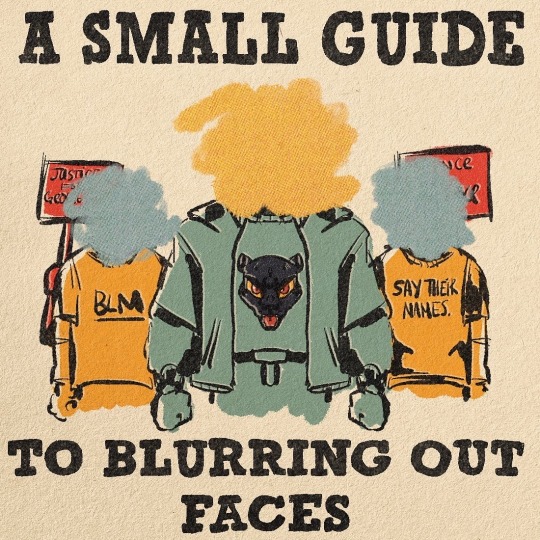

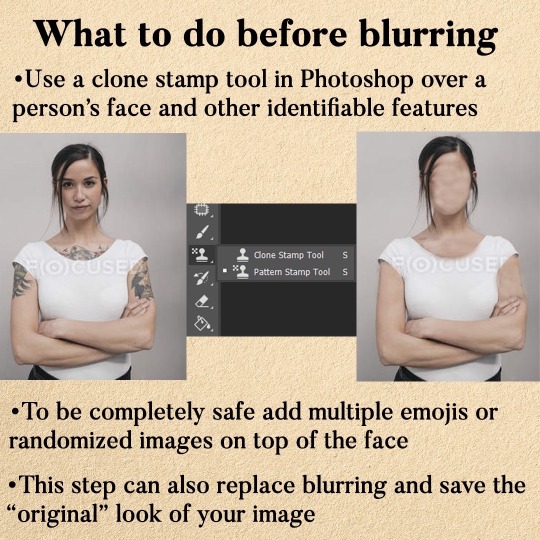

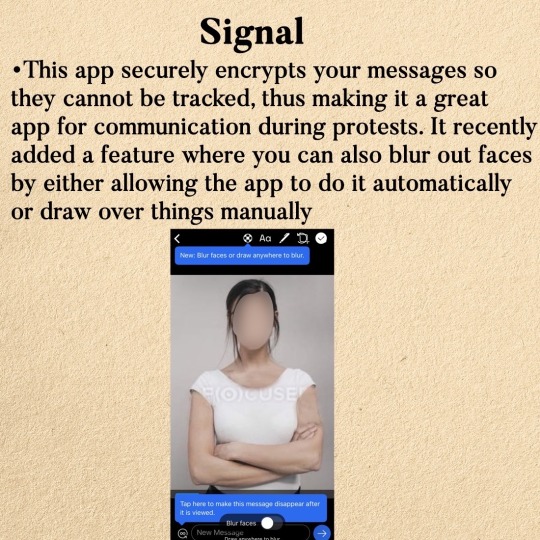

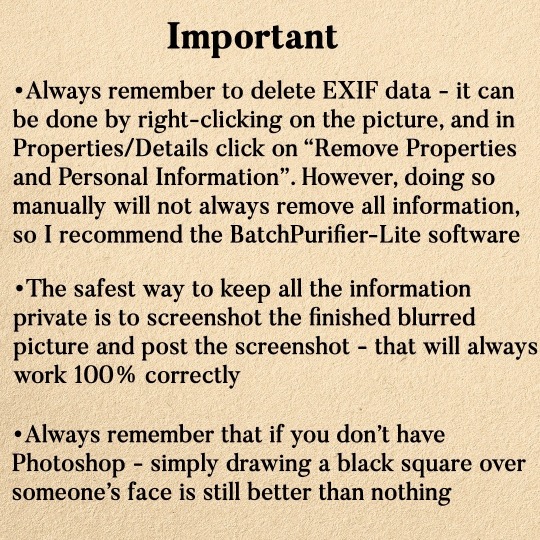
Hello guys, sorry for long time no art but I’ve been busy on my other platforms sharing resources and news for the Black Lives Matter movement, so art is currently on pause.
Either way, this is a guide I illustrated for user chivrik on Instagram on how to properly blur and de-trace protest photos. Many protesters have gone missing or turned up dead because they were traced through images they appeared on. Don’t help pigs and protect one another. ACAB and Black lives always matter.
If you need tips on protests, what is acab, defunding/reform of police, how to stay safe and links for charities/petitions, my Instagram is @/paperballz and there are saved highlights with the information. Or you can dm me.
55K notes
·
View notes
Photo










Yeah, I’m hopelessly in love with Chihaya..
Actually I really ship them. Taichi always beside her and support her without she realize it. That’s make Taichi can’t do anything to confess his feeling. I mean Chihaya always think about Arata without her realize and it hurts me whenever Taichi always harbored his own feeling T-T
I hope the best for you two. Taichi, you’re such a masochist.
48 notes
·
View notes
Video


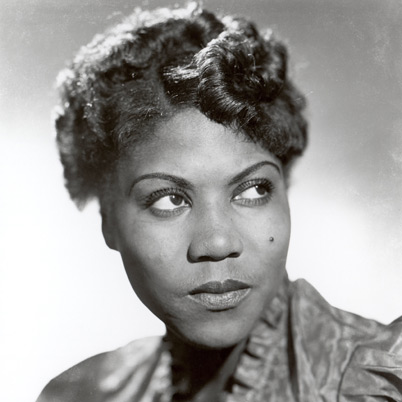
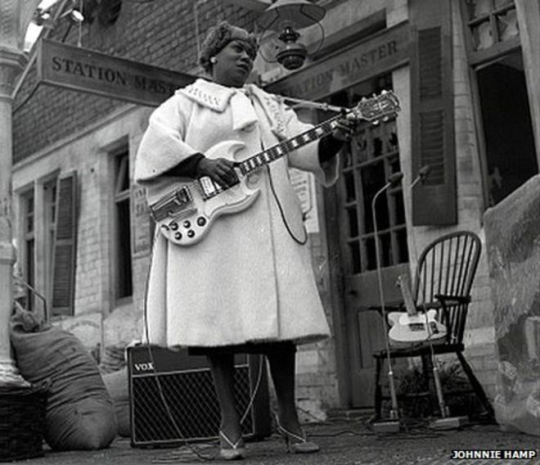
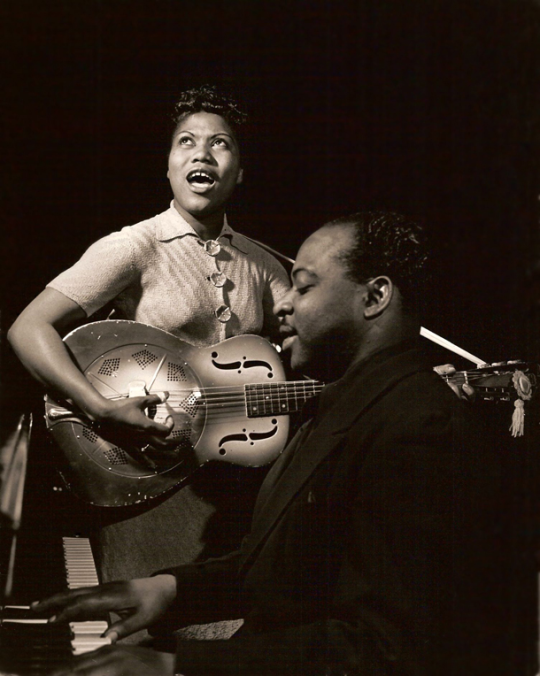


Meet Sister Rosetta Tharpe, the black woman who invented that rock and roll sound
You know what’s sad, before I even read this article I was ready to refute this because I grew up believing Chuck Berry created Rock and roll. It’s said how so many knew of this great woman yet none spoke on her greatness.
I also discovered Big Mama Thornton, who’s another hugely influential early inventor of rock and roll — I’m pretty sure Hound Dog was originally popularized by her, before Elvis stole it.
Love Sister Rosetta Tharpe! #BlackGirlMagic
A few of her performances:
https://www.youtube.com/watch?v=JeaBNAXfHfQ
https://www.youtube.com/watch?v=l9bX5mzdihs
https://www.youtube.com/watch?v=SR2gR6SZC2M
Also I heard she was bisexual…
Happy Black History Month!
241K notes
·
View notes
Text
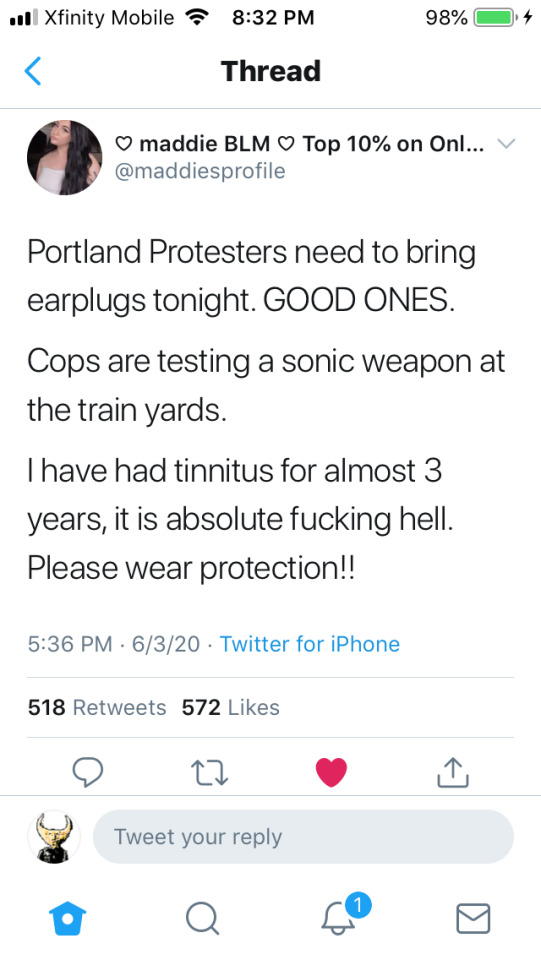
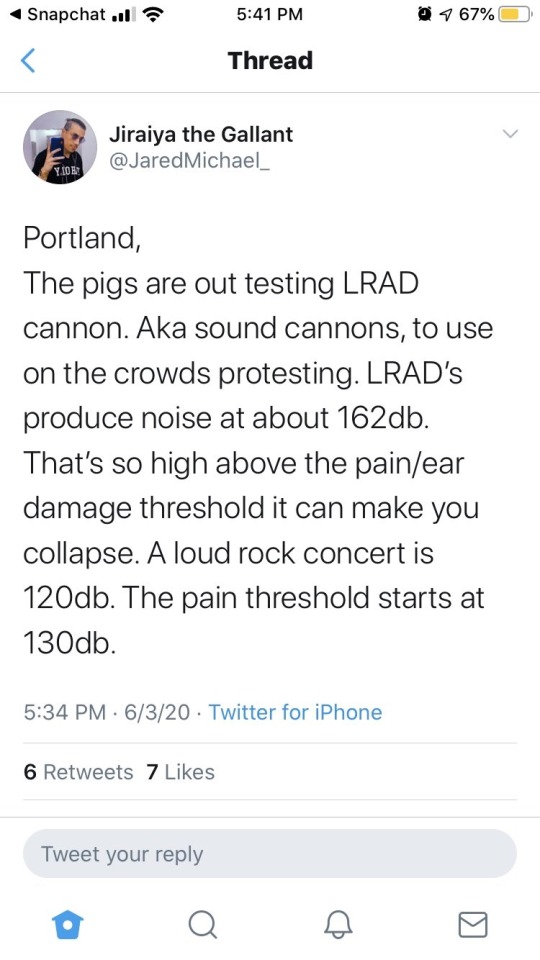
Protesters in the portland area, there are reports and supporting videos that the police may be ultilizing an LRAD sonic weapon today (6/3/20). Please wear ear protection and anticipate noise of ~160db.
32K notes
·
View notes
Photo









Takahiro SAKURAI ○ 櫻井 孝宏 ◎ (June 13)
🅷🅰🅿🅿🆈 46🆃🅷 🅱🅸🆁🆃🅷🅳🅰🆈 🆂🅰🅺🆄🅿🆈🅾🅽❢❢
5K notes
·
View notes
Text
hamlet but instead of soliloquies he just stands in the middle of the stage and screams
13K notes
·
View notes
Text
do not ignore this
our momentum is slowing down. we can’t let our dashes go back to normal when the world is not normal. so, if you are reading this, you are ~legally~ obligated to choose 2 numbers below; you must complete the task of those two numbers today. don’t pretend you didn’t see this. either do them right now or set a reminder to get it done before the sun goes down. the timer starts now. choose two.
sign some petitions. LINK HERE. if change.org hasn’t accused you of being a bot yet, you haven’t signed enough.
watch this youtube video. LINK HERE. do not skip the ads. this is a way to help raise money without having to donate any.
sign up to get daily actions. LINK HERE. after filling out the form, you will receive texts Mondays, Wednesdays and Fridays telling you what action to take. (i got this link from @ wp4bl on instagram)
text or call for any of these victims. LINK HERE. this website is extremely helpful, well organized, and practically does all of the work for you.
donate some money. LINK HERE. if you have any more money to spare, please donate it to one of these funds.
follow every single one of these organizations on social media: blcklivesmatter, colorofchange, reclaimtheblock, showingupforracialjustice, and civilrightsorg
post these important sources to your social media. LINK HERE. you have no idea who it might help.
read this article and forward it to at least one person. LINK HERE.
watch this video explaining the racial wealth gap. LINK HERE. it’s really informative and only about 15 minutes long.
do some reading. LINK HERE. this link has a ton of great resources to educate yourself. read at least one.
72K notes
·
View notes
Text
「耳をすませば」からの語彙

Vocabulary from Aoi Hiiragi’s manga Whisper of the Heart
スタジオジブリの「耳をすませば」はインターネットで人気があるのは当然ですが、その映画は同じタイトルがある漫画を元にして作られたことを知っていましたか?私はジブリ映画の大ファンなので、最近柊あおいが創作した「耳をすませば」という漫画を読んで大好きになっていますし、自分の習った新しい単語をリストで集めたらいいんじゃないと思いました。さて、行きましょう!
名詞(めいし/nouns)
昇降口(しょうこうぐち)= entrance
白状(はくじょう)= confession
球拾い(たまひろい)= fetching balls; ball boy
妖精(ようせい)= fairy, elf
残暑(ざんしょ)= late summer heat
見舞い(みまい)= get-well letter/visit; inquiring after someone
課題(かだい)= subject; homework, assignment
感性(かんせい)= sensitivity
本人(ほんにん)= the person themselves
親戚(しんせき)= relatives
司書(ししょ)= librarian
別世界(べっせかい)= another world
お負け(おまけ)= freebie (with purchase)
月面(げつめん)= surface of the moon
麦わら帽子(むぎわらぼうし)= straw hat
一般読書室(いっぱんどくしょしつ)= general reading room
人目(ひとめ)= public gaze/notice
宝探し(たからさがし)= treasure hunting
洞窟(どうくつ)= cave
生き埋め(いきうめ)= burying alive, being buried alive
呼び捨て(よびすて)= addressing someone without an honorific
人見知り(ひとみしり)= shyness, fear of strangers
面会(めんかい)= meeting face-to-face
自意識過剰(じいしきかじょう)= excessive self-consciousness
待ち伏せ(まちぶせ)= performing an ambush
我慢(がまん)= patience, endurance; self-control
片隅(かたすみ)= corner, nook
真っ向(まっこう)= right in front of
照れ隠し(てれかくし)= hiding your embarrassment
ほこり = dust
公式(こうしき)= formality; formula
行方(ゆくえ)= whereabouts; direction
男爵(だんしゃく)= baron
横断(おうだん)= crossing
弾丸(だんがん)= bullet, shot
アジト = hideout, secret base; safe house
怖がり(こわがり)= coward, timid person
異国(いこく)= foreign country
同士(どうし)= fellow, companion
明け方(あけがた)= dawn
名簿(めいぼ)= register of names
アライグマ = raccoon
内緒(ないしょ)= secrecy, confidentiality
苦難(くなん)= suffering, hardship
奇跡(きせき)= miracle, wonder
屋根裏(やねうら)= attic
大歓迎(だいかんげい)= warm welcome
持ち主(もちぬし)= owner, proprietor
天窓(てんまど)= skylight
夜行性(やこうせい)= nocturnality
ゴイサギ = night heron
医院(いいん)= clinic
お断り(おことわり)= declining, refusal
好奇心(こうきしん)= curiosity
動詞(どうし/verbs)
降りる(おりる)= to disembark, get off (e.g., from a train)
押し寄せる(おしよせる)= to advance on, surge forward; to overwhelm
覚める(さめる)= to wake up (e.g., from a dream)
ざわめく = to be noisy; to stir
揺れる(ゆれる��= to shake, sway
堪る(たまる)= to bear, endure
断る(ことわる)= to refuse
なつく = to become emotionally attached to
崩れる(くずれる)= to collapse, crumble
立ち直る(たちなおる)= to get back on your feet
めくる = to turn over (e.g., pages of a book)
頼み込む(たのみこむ)= to request earnestly
譲る(ゆずる)= to hand over; to yield
潰れる(つぶれる)= to break; to go bankrupt
覗く(のぞく)= to peek through/into
溢れる(あふれる)= to overflow
誤る(あやまる)= to make a mistake; to mislead
すれ違う(すれちがう)= to pass by each other
ぶつかる = to collide with; to encounter
舞う(まう)= to flutter about; to revolve
損(そん)する = to lose
詰まる(つまる)= to be blocked, packed
慎む(つつしむ)= to be careful, discreet; to do in moderation
旅立つ(たびだつ)= to begin a trip
乗り越える(のりこえる)= to climb/get over; to surmount
巡り合う(めぐりあう)= to meet by chance, fortuitously
湧く(わく)= to well up, appear; to feel emotions form
寝ぼける(ねぼける)= to be half asleep
扱う(あつかう)= to handle, deal with
羽織る(はおる)= to put on
宿る(やどる)= to lodge
負う(おう)= to bear, take responsibility for
刻む(きざむ)= to mince, carve; to be etched into one’s mind
覆う(おおう)= to conceal; to disguise
ずれる = to slide, shift
繋がる(つながる)= to be tied together, connected
形容詞(けいようし/adjectives)
真剣(しんけん)な = earnest, serious
気軽(きがる)な = lighthearted, at ease
足早(あしばや)な = light-footed
敏感(びんかん)な = sensitive to, susceptible to
間近(まぢか)な = nearby
ずるい = sneaky, sly; cheating
素直(すなお)な = obedient, meek; upfront
自信満々(じしんまんまん)な = brimming with self-confidence
鈍い(にぶい)= dull, thickheaded
歴史上(れきしじょう)の = historical
偶然(ぐうぜん)な = unexpected, fortuitous
眩しい(まぶしい)= dazzling, radiant
物足りない(ものたりない)= unsatisfactory
ケチな = stingy; shabby; petty
まともな = honest, decent
大げさ(おおげさ)な = grandiose; exaggerated
物騒(ぶっそう)な = dangerous, not secure
副詞(ふくし/adverbs)、オノマトペ(onomatopoeiae)
今時(いまどき)= these days
わざわざ = expressly, on purpose
それとも = otherwise, or else
ついでに = incidentally
そろそろ = soon, momentarily; slowly, gradually
くるくる = whirling; constantly changing
一目散(いちもくさん)に = at full speed
とりあえず = for the time being
いつの間(ま)にか = before you know it
よっぽど = very, to a great extent
キッパリ = clearly; decisively
げっそり = being disheartened
ばったり = with a clash; unexpectedly, suddenly
いきなり = all of a sudden
やたらに = randomly; recklessly
こそこそ = sneakily
幾多(いくた)= many, numerous
いつしか = before you know; unawares
ぽろぽろ = in large drops (i.e., crying)
ほとほと = utterly
さすがは = as you’d expect
ひたひた = steadily
ずいと = readily, without hesitation
自ら(みずから)= for yourself
少し(ずこし)ずつ = little by little
たとえ = even if, although
表現(ひょうげん/expressions)
なんちゃって = just kidding!
足(あし)を運ぶ(はこぶ)= to make your way to
浮かない顔(うかないかお)= long (depressed) face
〜かけ = in the midst of
とんでもない = unthinkable, far from it; don’t mention it
〜断ち(だち)= abstaining from
にっこり笑う(わらう)= to crack a grin
〜わけにはいかない = to have no choice but to
ヨイショ = expression of effort or strain
身(み)につける = to learn; to wear
〜尽くす(つくす)= to do to exhaustion
わぁ、こんなに長い投稿を皆さんのダッシュに置いてすみません!とにかくこのリストを何とかして役に立つといいですよね。もし質問があれば、是非私に聞いてください。おつかれさまでした!
80 notes
·
View notes








